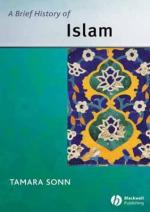|
This section contains 431 words (approx. 2 pages at 300 words per page) |

|
In al-Muqaddimah (1375-1378, revised 1378-1406) the renowned Muslim historian Ibn Khaldun (1332— 1406), who has often been called the Father of Sociology, suggested a connection between the diet of a region and its inhabitants' physical and mental characteristics:
Differences with regard to abundance and scarcity of food in the various inhabited regions and how they affect the human body and character: It should be known that not all the temperate zones have an abundance of food, nor do all their inhabitants lead a comfortable life. In some parts, the inhabitants enjoy an abundance of grain, seasonings, wheat, and fruits, because the soil is well balanced and favourable to plants and there is an abundant civilization. And then, in other parts, the land is strewn with rocks, and no seeds or herbs grow at all. There, the inhabitants have a...
|
This section contains 431 words (approx. 2 pages at 300 words per page) |

|




